For a Free E-mail subscription to this newsletter, click below:
.
Meredith Sue Willis's Books for Readers # 183
March 28, 2016
There are these days about as many uncredentialed walk-ons in our literary fiction as there are walk-ons in major league baseball. --
Gerald Howard
That quotation and the full article linked give a grim look at the publishing world today. it is, it turns out, a very small world, led by a handful of people who include those who know how to make money from books and a smaller handful who see themselves as fighting for high art in literature. If I had to choose sides, my allegiance would go with the second group, but they can be as provincial in their tastes as anyone else. Also, I find myself, in my advancing age, drawn less to beautiful sentences and the exuberance of experimentation and more to the powerful momentum of story.
I like to take a trip 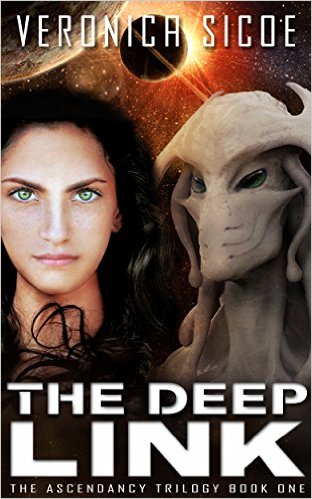 when I read.
when I read.
I also have a low tolerance for bad writing of any kind-- I try to read a little poetry every day (to get free poems for National Poetry Month, go to
Poem-a-Day), but I am deeply cognizant of how much writing is not getting through to the public or-- an equally big problem-- is getting to the public but is sloppily written and edited. I refer here mostly to self-published work which can be really bad, but sometimes quite good. The stigma of self-publishing, however, is fading fast, although distribution as well as editing remain huge problems, as they do with small and university presses.
A few days ago I came across an interesting science fiction novel (first of a trilogy) that is frankly and honestly self-published in e-book format and available for only $2.99-- three bucks with as much bang as Trader Joe's famous three buck Chuck. See my
comments below.
While we wait for publishing to sort itself out, there is still the writing itself, and the reading itself. One of the things I've read since the last issue is a wonderful book about writing,
How We Write: The Varieties of Writing Experience by Hilton Obenzinger. This is based on many years of Obenzinger's interviews with people through the "How I Write" Project at Stanford University. I had assumed that this would be interesting comments from poets and fiction writers on their process, and indeed they are in the book. I especially enjoyed a
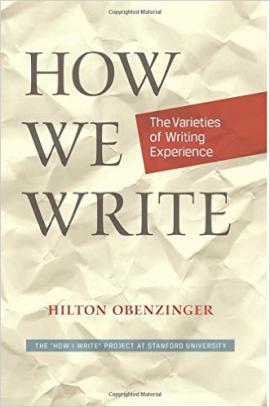
wonderful passage about David Henry Hwang's process of structuring his famous play
M. Butterfly-- how an idea took form as a drama.
But perhaps what I liked best here were the other writers--the scholars and professors. Writing is– why don't we think of this?– an essential part of many, many professions. For scholars, as for so-called creative writers, a great deal is explored and discovered in the process of writing. Included here are writers from the social sciences, but also from the hard sciences, in which visuals like graphs and charts become the backbone of an article, and words are mostly used to link the parts. Data, in other words, is the backbone of the piece of writing.
How We Write also has, along with excellent examples of the great variety of processes of writing among various people, an interesting subplot, as it were, about the tensions for scholars between writing articles acceptable to the scientific world of journals and scholars and the desire to share their insights and writing with lay people. There is, according to several of these writers, a danger of being "Saganized," which is having your career taken less than seriously in your profession (as apparently happened to astronomer Carl Sagan) by becoming a popularizer. Claude Steele, who named "stereotype anxiety" (the destructive socio-psychological force that can trammel members of racial and gender minorities), talks well about the division between the experiments and research in his work and how he gets the work out to the public.
Generally, Obenzinger himself takes a back seat here, featuring his admirable and delightful guests at what must have been a terrific series of live interviews. He is himself, of course, an accomplished and excellent writer (see my
review of his memoir Busy Dying ), and there are a number of hints of techniques he has developed in his teaching of writing to all kinds of students, including a passage on editing out over-used words that is really about how the over-used words are part of the process of thinking through writing.
This is an exciting and useful book for teachers of writing and anyone who writes. You'll dip into it often to refresh your thoughts about one of the most deeply human ways of exploring and sharing experience.
Next is a novels especially for the kind of readers who consider learning something to be part of the entertainment of reading.
Fraccidental Death by Donna Meredith combines a beautifully observed Harrison County, West Virginia setting with a lot of research about the mineral extraction business today–especially the dangers of so-called fracking in the Marcellus Shales of the Eastern
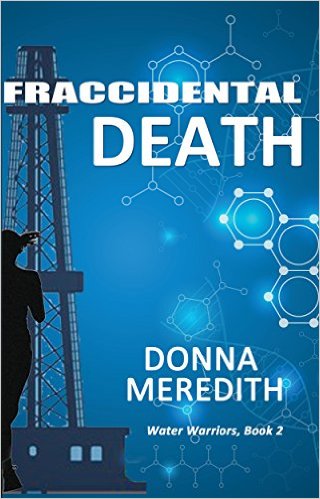
United States– plus a gripping murder mystery.
The plot line is that graduate student Summer Cassidy discovers that her thesis advisor is either having a nervous breakdown or running away from danger. Summer, a Florida native, arrives in West Virginia as winter comes on to study water quality near fracking sites. She meets lots of interesting people (and reignites an old relationship with a veteran who has become an anti-fracking activist).
The residents are friendly and welcoming, but they begin refusing to let her test their water-- and then she meets an elderly woman who has become ill after exposure to foul-tasting well water. Then a trucker whose job is hauling chemicals is badly injured in a chemical explosion.
Summer, a dedicated scientist, wants to hear both sides of the story--and ends up hearing at least seven or eight. A smooth, good-looking business man, who purports to do the extractions cleanly, is interested in her both as an employee and as a possible lover. She is tempted, but cares more for the anti-fracking veteran.
She brings up her best friend from Florida, a computer whiz who engages mano a mano(figuratively speaking) with an industry-hired hacker. Meanwhile, Summer is also forced to engage with her pill-addicted, unsupportive mother.
It's a big book that explores one woman's psychology, gives you a rousing good mystery story, and has just the right amount of love-- the course of which doesn't run smooth at all. Even the bad guys are under a lot of pressure, and the good guys don't always take the high road. Meanwhile, you learn a lot about gas and oil extraction and local politics. It's a solid, worthwhile read.
As you can see, I've been doing my favorite thing these last weeks, and impulse reading wherever a friend or another book sends me. After seeing an excellent exhibit of the work of the portraitist Elizabeth Vigée-LeBrun at the Metropolitan Museum in New York (
see my blog entry ) I ordered a copy of her memoir for my e-reader from the wonderful
free Gutenberg.org,
Memoir by Elizabeth Vigée-LeBrun, translated by Lytton Strachey (yes, the dear friend of Virginia Woolf and the rest of the Bloomsbury group).
Vigée-LeBrun was a total royalist during the French Revolution, but reading the memoir gives that a context for me. She is not an aristocrat herself, but rather an extremely talented artist who made her own living and supported her family-- by painting the queen and the aristocrats. There is no theoretical underpinning
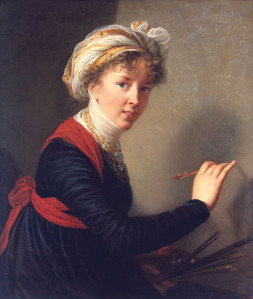
of politics, only her loyalty to the people who are (according to her optimistic view) kind, graceful, and give her commissions.
She fled to Italy with her daughter (truly the only great love of her life) and then worked for seven years in Russia, and three years in England, coming back to Paris in between, and living out the rest of her life in Louveciennes, north and east of Paris. She doesn't like the Bonapartists, of course, when they become the leaders of society, and is especially critical of the way the men and women don't mix socially under the Bonapartes (who knew that?), but she is careful what she says about them too-- indeed, about anyone with power. I think in many ways her psychology must be that of a high level servant– that is, totally dependent on the upper classes, and totally identified with them, even though she herself was a hard worker.
She painted prodigiously, a true working woman, who left her gambler-art dealer husband, but stayed in mostly amiable touch. Her real love, as I said, was her daughter, who did her wrong in the end and married a Russian with little money, and then ran away from him.
Vigée-LeBrun also loved her many friends, and her memoir is full of lively descriptions of them and the countries where she lived, and the bone wracking journeys between them. Some but not all of her paintings are quite wonderful, the life in certain faces, mostly women but men too. Her writing is clear and to the point. Like most people, in the end, she loved those who were kind to her.
This short memoir would be an excellent entryway into understanding the late eighteenth and early nineteenth centuries-- the story of a first rate portraitist, who wanted to be a history painter, but found that path largely denied to a woman, and and lived a long, active life during a time of great turbulence.
THE JOHN BIRCH E-READER REPORT: JOHN BIRCH STEPS DOWN
We are sorry to report that John Birch, who has provided us with a report on the state of e-reading for many issues, says that since e-books and e-readers have now been around for several years, his monthly computer searches reveal very little new, interesting, or unusual about e-books, Kindles, Nooks and "the whole e-phenomenon." He adds that, after making a real effort in the last month or two, he's drawn a total blank, because there's "precious little new to write about."
Thank you John for all the excellent reports!
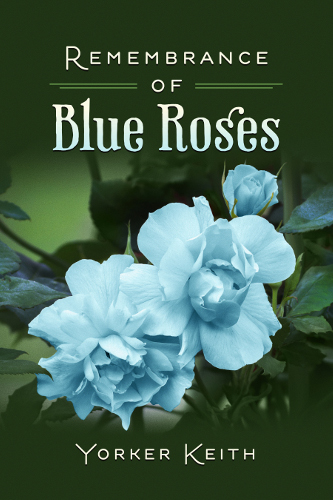
SOMETHING FREE!
SHORT REVIEWS
Belchamber by Howard Sturgis
I really enjoyed this quirky early-twentieth-century novel with a neurotic sad sack of a hero-- a young marquis who feels he should have died so his hearty sportsman of a brother could have been the heir. He faints at crucial moments and is tricked into marrying a woman who refuses to have sex with him.
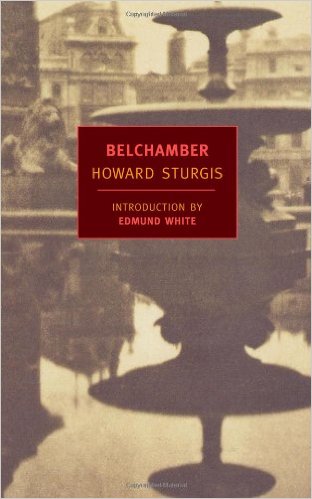
All the characters except for "Sainty" himself and one or two minor exceptions have very little in the way of socially redeeming characteristics. Even Sainty's Cambridge mentor turns out to be a garden variety snob.
The finally lines are a letter to Sainty from a woman he finds repellently vulgar, but who turns out to be the only person who truly appreciates his loss of a child he loves. Another of the handful of decent people is his earliest governess, a lady who ends up marrying (perish the thought) a widowed Jew who has two daughters, one of whom marries the fascinating snake in the grass, Sainty's cousin Claude-- smooth, sinuous, and sexually attractive to all genders. It's a book like no other I've read.
The Bostonians by Henry James
Sturgis was a good friend of Edith Weirton and Henry James, and I read
Belchamber after a recommendation in
Lea vis's The Great Tradition. Lea vis also ranks James's
The Bostonians as a top choice, so I reread it, in spite of a memory of having despised it many years ago. This time, when I finished, I realized that I had absolutely no memory of how it ended.
What I seem to have missed back then is (a) the comedy and (b) that the ending frankly predicts unhappy days ahead for the couple. The whole end section is a lot of fun, a dramatic and

comic scene in the "retiring" room at the Boston Music House where the unreconstructed Southern lover Basil Ran some comes to save the inspirational speaker Verona Tar rant from plunging into a career as a public speaker for the Feminist Cause. There is an amusing stand-off between Basil and a cop and the reappearance of Verona's awful, Dickensian parents, along with most of the other major characters. Olive Chancellor, the ideologue who has been battling with Basil during the whole novel for Verona's soul and body, sees she has lost, and there is some indication that she may be going on stage in place of Verona, to speak for the Cause, which is what she should have done in the first place instead of try to train Verona to do it.
The main question in the book is always whether the handsome Southerner's fatuous arrogance and general male chauvinist pig-headed ness are endorsed by James. I had always assumed that it was a wholly reactionary novel, but as the book goes on, James evinces more sympathy for Olive's suffering, and definitely likes a couple of the other women characters, especially the vague but lovable old campaigner Miss Birds eye as well as a woman doctor who takes Basil Ran some fishing.
The biggest problem for me is that while all "messages" and "ideologies" are disdained, Basil's conservatism is presented as quixotic, silly, and idiosyncratic whereas the feminist "Cause" is a parody of real issues. The bits of speeches about oppressed women have no depth, and are treated as if they were as idiosyncratic as Basil Ransom e's hobby-horses, when, indeed, they are part of a movement that has become part of today's accepted beliefs. There is no depiction of anything near the real work that was done by people like Susan B. Anthony or Elizabeth Lady Stentorian latter of whom even had a husband and children. That would be a fun novel-- about friendship and political change, but James never could have written it, nor would he have had any interest in it.
So I'm still not sure why Lea vis thinks it's one of James's best, but it's much more interesting and complex than I remembered.
This novel,
The Deep Link is the first of a trilogy, and it is self-published.
Available in e-book format for only $2.99 as well as in paperback, it gives at least as much bang for buck as Trader Joe's famous three buck Chuck. Author Veronica Sicoe calls herself an "authorpreneur," and makes no apologies about it.

She wants to keep control of her work, and to sell it directly to readers.
The novel is at least as well written as commercially published science fiction I have run across. There is in the front matter acknowledgement by name of the cover artist (not unusual) and the editor. I wonder if acknowledging the person who edited the book is a new trend-- I like the idea, actually, because serious writers these days are often having to hire or trade for editing, and it makes sense to know that a book has not simply come straight from the writer's computer with no gatekeepers at all, but has rather been vetted by someone you can look up, get evaluations of. Is this a new way of separating the well-written wheat from the unreadable trash?
The novel itself is fast moving with an adventuring, ethical woman hero I liked a lot. It has a little too much cyber-jargon for me-- but that is taste, not a criticism-- and there is also a quirky mixing of present and past tenses that I am sure is chosen consciously, but annoyed me. Maybe I've taught too many fiction writing classes where I emphasized consistency in tenses.
But mostly I just went along for a compelling ride: slipping through space, experiencing a rebellion in a dystopian human city, and lots and lots of colorful, sometimes slimy, aliens (always my favorite part!).
Best of all was an especially powerful inter-species love story: a kind of alien-human version of Mr. Darcy and Elizabeth Bennet. He, way beyond human beings in his abilities, does a mind meld exploration on her to get information-- and is blown away by a mutual link more powerful than either of them can imagine. Really nice! And explosively, electronically sexy.
Shadowshaper by Daniel José Older
The considerable strength of this young adult novel is the Caribbean/African ancestors/spirituality/ mural painting and Bedford-Stuyvesant characters and setting. It's about a moment during gentrification when the teen characters both like the expensive new hipster coffee shops and feel pushed out of their neighborhood. The language beautifully mixes an artful and conscious street slang and literary imagery. The villain is a white guy, of course, corrupted by envy of relationships with the spirts. The dead here, if I get it right, have power and their memories, but no future. There's lots of dancing and music and nice distinctions between Puerto Rican and Haitian and from Martinique and Dominican Republic. Oh, and while heroine Sierra is definitely a leader, she always needs her friends and family. The importance of the group is inspiring and believable. The plot is a little clunky in places-she seems to figure out who the villain is a little too easily, for example, but, on the other hand, I didn't care much as I read fast and with pleasure.
Child 44 by Tom Rob Smith
Odd for me, to read a book after seeing the movie. The movie of this, with Tom Hardy and Gary Oldman, caught me up with its atmosphere--the Soviet Union under Stalin, and I wanted more. So I got a
paperbackswap copy of the book. It was a a best seller when it came out, although I'd never heard of it: it's about an officer of the secret police who tries to do the right thing, acts the sleuth when children are murdered--and the power structure won't admit that such things could happen in a happy country.
There are lots of required plot turns and connections, but also a lot of emotional resonance and the exploration of what you will do to survive-- including betraying anyone, and how everyone understands that. The movie really changed a lot, including Leo's childhood gory back story. It was also a striking example of what books have that movies don't and vice versa.
What the movie had was
Tom Hardy, of whom I'm a big fan. Unlike a lot of actors, he totally disappears in each part, but the part always excites me, whether it's this Russian state security officer or Mad Max. The movie also has Gary Oldham-- lots of faces . As Norma Desmond famously says in
Sunset Boulevard, "We didn't need dialogue. We had faces!" It also has a beautiful long shot of a train running through some Hungarian woods, or no I believe Czech.
What the book has is more vicious and detailed violence and a more complex plot. The extra plot complexities enriched the novel and made it feel like a more important book than it probably is. The book also takes the privilege of the thriller writer (influenced by the movies of course) and flips point of view a lot. Oh, and the book has a lot of its big scenes of the novel in winter, which the movie just skipped over, probably too hard to film. There is, for example, a good action scene of breaking through a frozen stream that's skipped in the movie, and this kind of action–from the inside, how long you have before your body shuts down from the cold– is just about impossible to do in the movies, which are a sense experience in themselves, whereas books are largely a demand on the reader to imagine the senses. Anyhow, a good thriller.
READ AND LISTEN ONLINE
An interesting interview with a young professional pianist (who happens to be my nephew!), Alex Kato Willis. He does classical improvisation, something very unusual today, although Mozart and Beethoven excelled at it. Click on the radio show, then move in to the 35 minute mark to hear it.
John Birch, just retiring from a regular column in this newsletter, has been running a blog for the past few years, and it now contains several dozen of his fiction and nonfiction stories, many of which have been published here and there in the U.S. and Europe. See it atwww.JohnBirchLive.blogspot.com.
Barbara Crooker's poems are updated often on her website.
Ingrid Hughes's blog includes a report on a journey through serious mental illness.
ANNOUNCEMENTS, BOOKS RECEIVED, CONTESTS, WORKSHOPS, READINGS AND MORE.
Now available in hard copy!
Yorker Keith's Remembrance of Blue Roses:

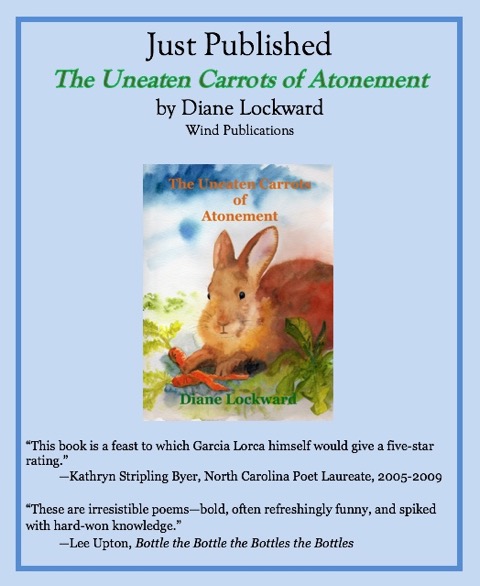
Chela: The Adventures of Jack and Ty is in part a tribute to one of the greatest writers and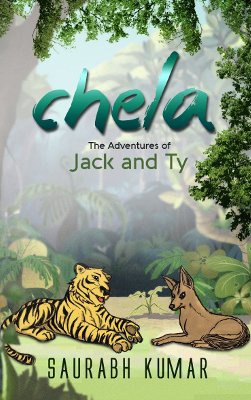 humorists of the twentieth century, Sir P.G. Wodehouse, and a spoof on the fantasy genre where anything and everything can happen at any given moment and time. Jack is a hungry jackal, booted out of his clan for being lazy and incapable of providing for himself. One night while wandering a patch of forest he accidentally steps on the tail of a tiger that is understandably furious at the jackal. The tiger Ty, confronts the jackal with the latter begging forgiveness. The commotion dies down and they soon go their separate ways. Fate, however, brings them together again and and they soon realize they are both facing a similar predicament – an acute shortage of food. The two strangers soon become comrades and along with Herbert, a cross between a wolf and a pariah dog, set out on a journey through the vast woodland of Baganpore and beyond in search of food. On the way they face perils aplenty in the form of diabolical relatives, cunning scavengers, a mysterious banyan tree and a lake that isn't what it appears to be.
humorists of the twentieth century, Sir P.G. Wodehouse, and a spoof on the fantasy genre where anything and everything can happen at any given moment and time. Jack is a hungry jackal, booted out of his clan for being lazy and incapable of providing for himself. One night while wandering a patch of forest he accidentally steps on the tail of a tiger that is understandably furious at the jackal. The tiger Ty, confronts the jackal with the latter begging forgiveness. The commotion dies down and they soon go their separate ways. Fate, however, brings them together again and and they soon realize they are both facing a similar predicament – an acute shortage of food. The two strangers soon become comrades and along with Herbert, a cross between a wolf and a pariah dog, set out on a journey through the vast woodland of Baganpore and beyond in search of food. On the way they face perils aplenty in the form of diabolical relatives, cunning scavengers, a mysterious banyan tree and a lake that isn't what it appears to be.
Suzanne McConnell's wonderful story "Neighbors" is now available fromhttps://www.ohio.edu/nor/current.htm . It came out this fall, and there's a podcast coming!
Evelyn Walsh has won the SEÁN Ó FAOLÁIN SHORTSTORY COMPETITION for her story "White Rabbit !" Also see her work in the current issue of The Hamilton Stone Review.
IRENE WEINBERGER BOOKS:
.
A NOTE ABOUT AMAZON.COM
I have a lot of friends and colleagues who really despise Amazon. For a discussion of Amazon and organized labor and small presses, see the comments of Jonathan Greene and others here.
The largest unionized bookstore in America has a webstore at Powells Books. Some people prefer shopping online there to shopping at Amazon.com. An alternative way to reach Powell's site and support the union is via http://www.powellsunion.com. Prices are the same but 10% of your purchase will go to support the union benefit fund.
WHERE TO FIND BOOKS MENTIONED IN THIS NEWSLETTER

If a book discussed in this newsletter has no source mentioned, don’t forget that you may be able to borrow it from your public library as either a hard copy or a digital copy. You may also buy or order from your local independent bookstore. (To find a bricks-and-mortar store, click the "shop indie" logo left).
To buy books online, I often use Bookfinder or Alibris. Bookfinder gives the price with shipping and handling, so you can compare what you’re really going to have to pay.
Another source for used and out-of-print books is All Book Stores. Also consider Paperback Book Swap, a postage-only way to trade books with other readers.
If you are using an electronic reader like Kindle, Nook, or Kobo, don't forget free books at theGutenberg Project—mostly classics, and free, free, free!
Kobobooks.com sells e-books for independent brick-and-mortar bookstores.
RESPONSES TO THIS NEWSLETTER
Please send responses to this newsletter and suggestions directly to Meredith Sue Willis . Unless you instruct otherwise, your responses may be edited for length and published in this newsletter.
BACK ISSUES click here.
LICENSE
when I read.
I also have a low tolerance for bad writing of any kind-- I try to read a little poetry every day (to get free poems for National Poetry Month, go to Poem-a-Day), but I am deeply cognizant of how much writing is not getting through to the public or-- an equally big problem-- is getting to the public but is sloppily written and edited. I refer here mostly to self-published work which can be really bad, but sometimes quite good. The stigma of self-publishing, however, is fading fast, although distribution as well as editing remain huge problems, as they do with small and university presses.A few days ago I came across an interesting science fiction novel (first of a trilogy) that is frankly and honestly self-published in e-book format and available for only $2.99-- three bucks with as much bang as Trader Joe's famous three buck Chuck. See my comments below.While we wait for publishing to sort itself out, there is still the writing itself, and the reading itself. One of the things I've read since the last issue is a wonderful book about writing, How We Write: The Varieties of Writing Experience by Hilton Obenzinger. This is based on many years of Obenzinger's interviews with people through the "How I Write" Project at Stanford University. I had assumed that this would be interesting comments from poets and fiction writers on their process, and indeed they are in the book. I especially enjoyed awonderful passage about David Henry Hwang's process of structuring his famous play M. Butterfly-- how an idea took form as a drama.
But perhaps what I liked best here were the other writers--the scholars and professors. Writing is– why don't we think of this?– an essential part of many, many professions. For scholars, as for so-called creative writers, a great deal is explored and discovered in the process of writing. Included here are writers from the social sciences, but also from the hard sciences, in which visuals like graphs and charts become the backbone of an article, and words are mostly used to link the parts. Data, in other words, is the backbone of the piece of writing.How We Write also has, along with excellent examples of the great variety of processes of writing among various people, an interesting subplot, as it were, about the tensions for scholars between writing articles acceptable to the scientific world of journals and scholars and the desire to share their insights and writing with lay people. There is, according to several of these writers, a danger of being "Saganized," which is having your career taken less than seriously in your profession (as apparently happened to astronomer Carl Sagan) by becoming a popularizer. Claude Steele, who named "stereotype anxiety" (the destructive socio-psychological force that can trammel members of racial and gender minorities), talks well about the division between the experiments and research in his work and how he gets the work out to the public.Generally, Obenzinger himself takes a back seat here, featuring his admirable and delightful guests at what must have been a terrific series of live interviews. He is himself, of course, an accomplished and excellent writer (see my review of his memoir Busy Dying ), and there are a number of hints of techniques he has developed in his teaching of writing to all kinds of students, including a passage on editing out over-used words that is really about how the over-used words are part of the process of thinking through writing.This is an exciting and useful book for teachers of writing and anyone who writes. You'll dip into it often to refresh your thoughts about one of the most deeply human ways of exploring and sharing experience.Next is a novels especially for the kind of readers who consider learning something to be part of the entertainment of reading. Fraccidental Death by Donna Meredith combines a beautifully observed Harrison County, West Virginia setting with a lot of research about the mineral extraction business today–especially the dangers of so-called fracking in the Marcellus Shales of the EasternUnited States– plus a gripping murder mystery.
The plot line is that graduate student Summer Cassidy discovers that her thesis advisor is either having a nervous breakdown or running away from danger. Summer, a Florida native, arrives in West Virginia as winter comes on to study water quality near fracking sites. She meets lots of interesting people (and reignites an old relationship with a veteran who has become an anti-fracking activist).The residents are friendly and welcoming, but they begin refusing to let her test their water-- and then she meets an elderly woman who has become ill after exposure to foul-tasting well water. Then a trucker whose job is hauling chemicals is badly injured in a chemical explosion.Summer, a dedicated scientist, wants to hear both sides of the story--and ends up hearing at least seven or eight. A smooth, good-looking business man, who purports to do the extractions cleanly, is interested in her both as an employee and as a possible lover. She is tempted, but cares more for the anti-fracking veteran.She brings up her best friend from Florida, a computer whiz who engages mano a mano(figuratively speaking) with an industry-hired hacker. Meanwhile, Summer is also forced to engage with her pill-addicted, unsupportive mother.It's a big book that explores one woman's psychology, gives you a rousing good mystery story, and has just the right amount of love-- the course of which doesn't run smooth at all. Even the bad guys are under a lot of pressure, and the good guys don't always take the high road. Meanwhile, you learn a lot about gas and oil extraction and local politics. It's a solid, worthwhile read.As you can see, I've been doing my favorite thing these last weeks, and impulse reading wherever a friend or another book sends me. After seeing an excellent exhibit of the work of the portraitist Elizabeth Vigée-LeBrun at the Metropolitan Museum in New York (see my blog entry ) I ordered a copy of her memoir for my e-reader from the wonderful free Gutenberg.org, Memoir by Elizabeth Vigée-LeBrun, translated by Lytton Strachey (yes, the dear friend of Virginia Woolf and the rest of the Bloomsbury group).Vigée-LeBrun was a total royalist during the French Revolution, but reading the memoir gives that a context for me. She is not an aristocrat herself, but rather an extremely talented artist who made her own living and supported her family-- by painting the queen and the aristocrats. There is no theoretical underpinningof politics, only her loyalty to the people who are (according to her optimistic view) kind, graceful, and give her commissions.
She fled to Italy with her daughter (truly the only great love of her life) and then worked for seven years in Russia, and three years in England, coming back to Paris in between, and living out the rest of her life in Louveciennes, north and east of Paris. She doesn't like the Bonapartists, of course, when they become the leaders of society, and is especially critical of the way the men and women don't mix socially under the Bonapartes (who knew that?), but she is careful what she says about them too-- indeed, about anyone with power. I think in many ways her psychology must be that of a high level servant– that is, totally dependent on the upper classes, and totally identified with them, even though she herself was a hard worker.She painted prodigiously, a true working woman, who left her gambler-art dealer husband, but stayed in mostly amiable touch. Her real love, as I said, was her daughter, who did her wrong in the end and married a Russian with little money, and then ran away from him.Vigée-LeBrun also loved her many friends, and her memoir is full of lively descriptions of them and the countries where she lived, and the bone wracking journeys between them. Some but not all of her paintings are quite wonderful, the life in certain faces, mostly women but men too. Her writing is clear and to the point. Like most people, in the end, she loved those who were kind to her.This short memoir would be an excellent entryway into understanding the late eighteenth and early nineteenth centuries-- the story of a first rate portraitist, who wanted to be a history painter, but found that path largely denied to a woman, and and lived a long, active life during a time of great turbulence.All the characters except for "Sainty" himself and one or two minor exceptions have very little in the way of socially redeeming characteristics. Even Sainty's Cambridge mentor turns out to be a garden variety snob.
The finally lines are a letter to Sainty from a woman he finds repellently vulgar, but who turns out to be the only person who truly appreciates his loss of a child he loves. Another of the handful of decent people is his earliest governess, a lady who ends up marrying (perish the thought) a widowed Jew who has two daughters, one of whom marries the fascinating snake in the grass, Sainty's cousin Claude-- smooth, sinuous, and sexually attractive to all genders. It's a book like no other I've read.For more commentary, see the London Review of Books article by Alan Hollinghurstcomic scene in the "retiring" room at the Boston Music House where the unreconstructed Southern lover Basil Ran some comes to save the inspirational speaker Verona Tar rant from plunging into a career as a public speaker for the Feminist Cause. There is an amusing stand-off between Basil and a cop and the reappearance of Verona's awful, Dickensian parents, along with most of the other major characters. Olive Chancellor, the ideologue who has been battling with Basil during the whole novel for Verona's soul and body, sees she has lost, and there is some indication that she may be going on stage in place of Verona, to speak for the Cause, which is what she should have done in the first place instead of try to train Verona to do it.
The main question in the book is always whether the handsome Southerner's fatuous arrogance and general male chauvinist pig-headed ness are endorsed by James. I had always assumed that it was a wholly reactionary novel, but as the book goes on, James evinces more sympathy for Olive's suffering, and definitely likes a couple of the other women characters, especially the vague but lovable old campaigner Miss Birds eye as well as a woman doctor who takes Basil Ran some fishing.The biggest problem for me is that while all "messages" and "ideologies" are disdained, Basil's conservatism is presented as quixotic, silly, and idiosyncratic whereas the feminist "Cause" is a parody of real issues. The bits of speeches about oppressed women have no depth, and are treated as if they were as idiosyncratic as Basil Ransom e's hobby-horses, when, indeed, they are part of a movement that has become part of today's accepted beliefs. There is no depiction of anything near the real work that was done by people like Susan B. Anthony or Elizabeth Lady Stentorian latter of whom even had a husband and children. That would be a fun novel-- about friendship and political change, but James never could have written it, nor would he have had any interest in it.So I'm still not sure why Lea vis thinks it's one of James's best, but it's much more interesting and complex than I remembered.This novel, The Deep Link is the first of a trilogy, and it is self-published. Available in e-book format for only $2.99 as well as in paperback, it gives at least as much bang for buck as Trader Joe's famous three buck Chuck. Author Veronica Sicoe calls herself an "authorpreneur," and makes no apologies about it.She wants to keep control of her work, and to sell it directly to readers.
The novel is at least as well written as commercially published science fiction I have run across. There is in the front matter acknowledgement by name of the cover artist (not unusual) and the editor. I wonder if acknowledging the person who edited the book is a new trend-- I like the idea, actually, because serious writers these days are often having to hire or trade for editing, and it makes sense to know that a book has not simply come straight from the writer's computer with no gatekeepers at all, but has rather been vetted by someone you can look up, get evaluations of. Is this a new way of separating the well-written wheat from the unreadable trash?The novel itself is fast moving with an adventuring, ethical woman hero I liked a lot. It has a little too much cyber-jargon for me-- but that is taste, not a criticism-- and there is also a quirky mixing of present and past tenses that I am sure is chosen consciously, but annoyed me. Maybe I've taught too many fiction writing classes where I emphasized consistency in tenses.But mostly I just went along for a compelling ride: slipping through space, experiencing a rebellion in a dystopian human city, and lots and lots of colorful, sometimes slimy, aliens (always my favorite part!).Best of all was an especially powerful inter-species love story: a kind of alien-human version of Mr. Darcy and Elizabeth Bennet. He, way beyond human beings in his abilities, does a mind meld exploration on her to get information-- and is blown away by a mutual link more powerful than either of them can imagine. Really nice! And explosively, electronically sexy.humorists of the twentieth century, Sir P.G. Wodehouse, and a spoof on the fantasy genre where anything and everything can happen at any given moment and time. Jack is a hungry jackal, booted out of his clan for being lazy and incapable of providing for himself. One night while wandering a patch of forest he accidentally steps on the tail of a tiger that is understandably furious at the jackal. The tiger Ty, confronts the jackal with the latter begging forgiveness. The commotion dies down and they soon go their separate ways. Fate, however, brings them together again and and they soon realize they are both facing a similar predicament – an acute shortage of food. The two strangers soon become comrades and along with Herbert, a cross between a wolf and a pariah dog, set out on a journey through the vast woodland of Baganpore and beyond in search of food. On the way they face perils aplenty in the form of diabolical relatives, cunning scavengers, a mysterious banyan tree and a lake that isn't what it appears to be.
Books for Readers Newsletter by Meredith Sue Willis is licensed under a Creative Commons Attribution-NoDerivs 3.0 Unported License. Permissions beyond the scope of this license may be available at http://www.meredithsuewillis.com. Some individual contributors may have other licenses.
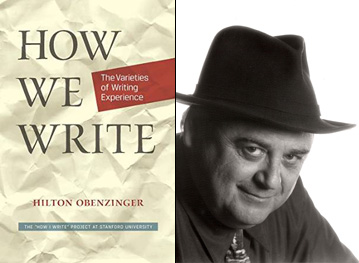



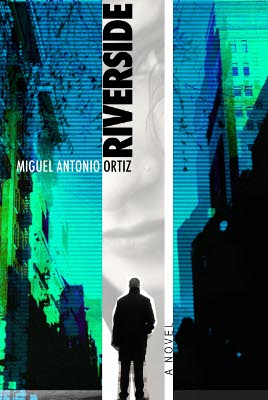
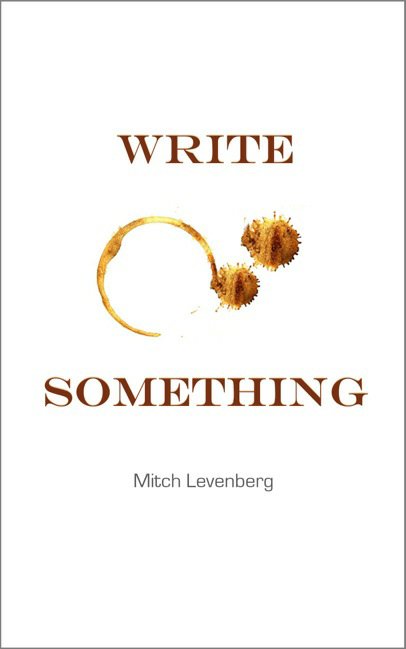
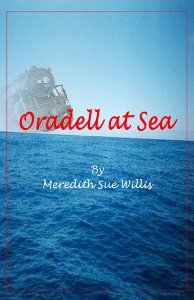


1 comment:
Discover how THOUSAND of people like YOU are making a LIVING online and are living their dreams TODAY.
Get daily ideas and methods for making THOUSAND OF DOLLARS per day ONLINE for FREE.
GET FREE ACCESS TODAY
Post a Comment